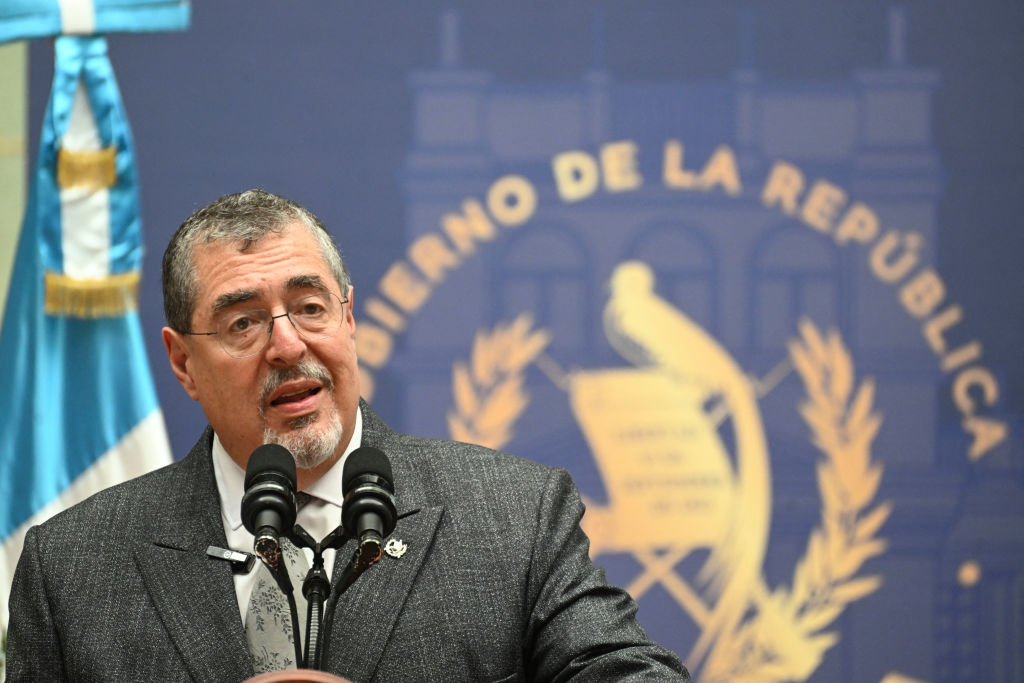Latin America's New Presidents
Latin America's New Presidents
Brazil, Chile, Colombia, and Costa Rica elected new presidents in 2010. AS/COA Online takes a look at these new leaders and considers the major events shaping their presidencies.
Four Latin American countries elected new presidents in 2010: Brazil, Chile, Colombia, and Costa Rica. Brazil’s president took office on January 1 while the other three new leaders have seen the start of their terms colored by issues ranging from natural disasters to overcoming disputes with neighboring countries. AS/COA Online provides an overview of the events that have marked their presidencies and drawn international attention.
- Chile - Sebastián Piñera (March 11, 2010 inauguration)
- Costa Rica - Laura Chinchilla (May 8, 2010 inauguration)
- Colombia - Juan Manuel Santos (August 7, 2010 inauguration)
- Brazil - Dilma Rousseff (January 1, 2011 inauguration)
Chile
Sebastian Piñera
Approval Rating: 50 percent
Sebastián Piñera edged out Concertación candidate Eduardo Frei in Chile’s January 17 runoff election and became Chile’s first conservative president to win an election since 1952. A month later, an 8.8 magnitude earthquake rocked the Pacific country, leaving 486 dead, thousands homeless, and major infrastructure in shambles. Even before taking Chile’s reins on March 11, Piñera played a major role in the reconstruction effort, which drew on savings and strong economic policies that also helped Chile rebound from the global economic recession in 2009.
In August, a mining cave-in trapped 33 miners underground. Nearly ten weeks later, the miners became international celebrities as Piñera presided over a 22-hour rescue on October 13. Piñera, along with his predecessor Michelle Bachelet, also oversaw his country’s dramatic economic recovery and a GDP growth rate of over 5 percent.
Costa Rica
Laura Chinchilla
Approval Rating: 64 percent
The only Latin American candidate in 2010 to avoid a runoff, Laura Chinchilla was elected Costa Rica’s first female president February 7. Since she took office in May, Chinchilla’s defining policy challenge has been a dispute with Nicaragua over a contested piece of land located in the delta of the San Juan River, which divides the two countries. The dispute led to weeks of negotiations involving the Organization of American States and, at times, harsh words between Chinchilla and her Nicaraguan counterpart Daniel Ortega. But, by the end of the Central American Integration System summit on December 17, the countries moved toward a possible rapprochement when they agreed for Guatemalan President Álvaro Colom to mediate on the crisis.
Colombia
Juan Manuel Santos
Approval Rating: 90 percent (CM& Noticias)
(In September, Gallup placed Santos’ approval rating at 64 percent, 20 points below a CM& Noticias poll from the same time.)
Since taking office August 7, Juan Manuel Santos has marked his presidency with a conciliatory foreign policy to bridge divides with Andean neighbors. After defeating opposition candidate Antanas Mockus in the June 20 runoff elections, Santos called predecessor Álvaro Uribe one of Colombia’s “best presidents.” Yet, he began warming relations with Venezuela, which had chilled under his predecessor--particularly following the Andean crisis of 2008, when Colombia struck a Revolutionary Armed Forces of Colombia (FARC) camp on Ecuadoran territory and Caracas sided with Quito in condemning the raid. Santos also oversaw the normalization of strained relations with Ecuador. But the new president hasn’t just mended ties; he also built on relations with the United States and Brazil. As COA Vice President Eric Farnsworth noted in an article covering Santos first 100 days, the Colombian leader has sought closer ties with Brazil “to reposition Colombia as a South American nation first.”
Santos also initiated his presidency with a powerful blow to the FARC. In September, Santos announced Colombian forces’ victory over major FARC encampments, arguing that the death of rebel leader Mono Jojoy signaled the success of a decade-long security policy.
Heavy rains that began plaguing the country in March led to intense flooding that has displaced roughly two million and killed over 250, prompting Santos to declare a state of emergency on December 7. Some see the crisis as the defining moment of Santos’ early presidency, and blog La Silla Vacia asks “Will this be his Katrina or his miner rescue?”
President-elect Dilma Rousseff, President Luiz Inácio Lula da Silva’s hand-picked successor, defeated her opponent José Serra in an October 31 runoff election, capturing 55.4 percent of the vote to his 43.5 percent. Like Chinchilla, she will be her country’s first female president. Rousseff’s campaign benefited from Lula’s high popularity. However, after her election Rousseff made it clear that she's not afraid to strike out on her own in terms of foreign policy. In an interview with The Washington Post, Rousseff said that, after her January 1 inauguration, she may reverse Brazil’s position on human rights in Iran and make efforts to strengthen Brasilia-Washington relations by visiting the White House shortly after taking office. She has also sketched out her plans for managing the world’s third-fastest-growing economy, indicating she will continue on the economic path set by Lula.
Learn More:
- AS/COA Online coverage of Latin American elections from October 2009 to October 2010.
- Writing for PODER Hispanic, COA’s Eric Farnsworth refers to 2010 elections in a look at what 2011 may hold for Latin America.
- President Sebastián Piñera’s remarks to AS/COA on September 22, 2010.
- President Juan Manuel Santos’ remarks to AS/COA on September 23, 2010.







